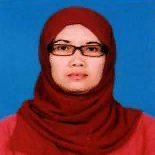
Nurwijayanti. KN
Work place: Electrical Engineering, Faculty of Industrial Technology, Universitas Marsekal Dirgantara Suryadarma Jl. Protokol Halim Perdanakusuma Jakarta Timur 13610 – Indonesia
E-mail: nurwijayanti_kn@yahoo.com
Website:
Research Interests: Network Architecture
Biography
Nurwijayanti KN, born in Jakarta. January 19, 1976. Last education was a master’s in Electrical Engineering, majoring in Telecommunications University of Indonesia, Depok, Indonesia, Graduated in February 2003. Began working as a lecturer in the electrical engineering study program Universitas Dirgantara Marsekal Suryadarma in 2001 and Tarumanegara University in 2006. Competent research fields are telecommunication, network, and computers, there are 12 published articles, published in national journals and several international proceedings.
Author Articles
Garbage Bin Monitoring System Based on the Internet of Things at University Dirgantara Marsekal Suryadarma
By Nurwijayanti. KN Rhekaz Eka Adhytyas
DOI: https://doi.org/10.5815/ijeme.2021.02.01, Pub. Date: 8 Apr. 2021
Garbage is a major problem, because it can harm human health, cause bad odors, and air pollution. With the existence of trash bins, it seems that it doesn't matter because most people prefer to litter, as well as cleaning workers to check the capacity of the trash can who often forget to cause garbage to accumulate so that it can pollute the environment.
To solve the waste problem, especially at universities, a smart campus concept was created to solve the problem of waste management. By utilizing GPS technology, Internet of Things, Wi-fi technology that is already available, and other hardware devices such as Arduino microcontrollers, ultrasonic sensors, and others.
With this concept, it is hoped that the cleaning staff will arrive on time to transport the garbage according to the information from the existing application, where the information has shown the coordinates of the full trash can so that cleanliness and comfort are maintained.
Other Articles
Subscribe to receive issue release notifications and newsletters from MECS Press journals